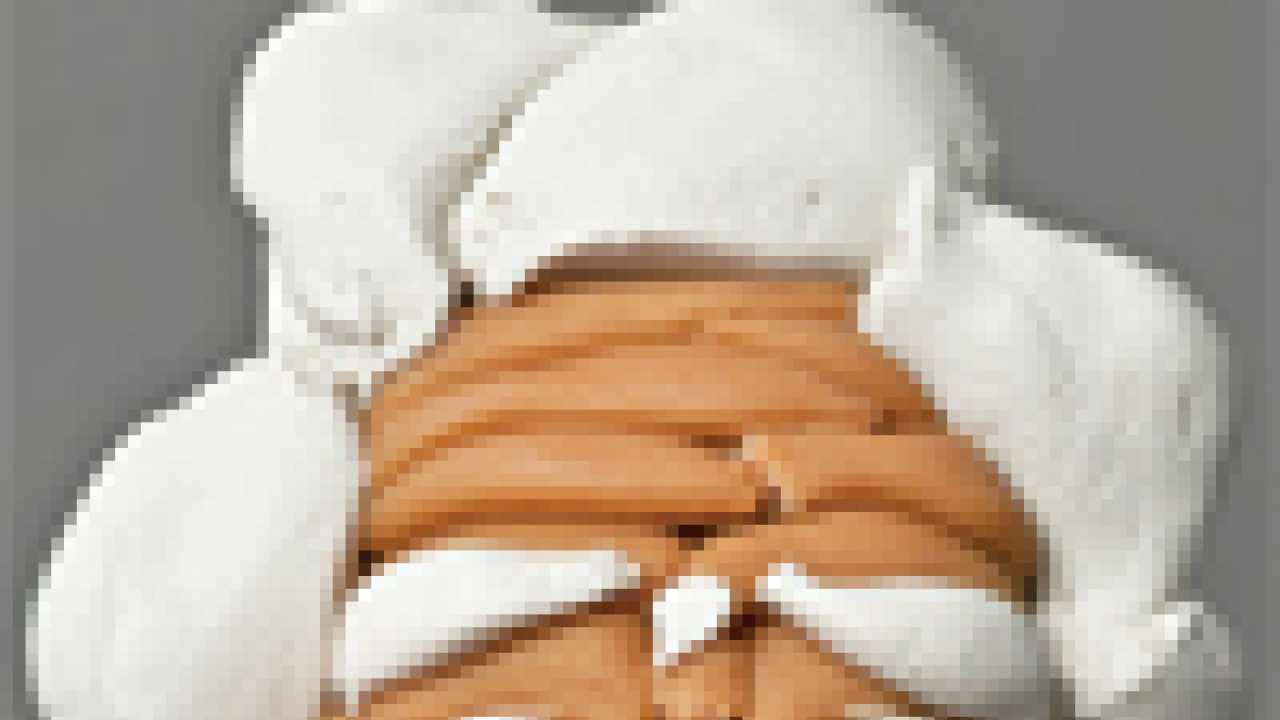
Every now and then, happenstance punctuates life in a way that you can’t help wonder if God — if such a divine being does indeed exist — isn’t an aspiring author, determined to write something that will outbuzz the Indian books that have made critics’ pulses flutter like that of a Barbara Cartland heroine.
Take what happened last week. A politician fondly remembered for, among other things, disrupting India-Pakistan cricket matches, died. Three days later, an exhibition by a young Pakistani artist opened quietly in a south Mumbai gallery. Among the works on display were a series of portraits of students from Pakistani madrasas and a photograph that shows a row of trees that have signs with the 99 names of Allah pinned to the barks. The day after the exhibition opened, a 25-year-old Muslim terrorist was hanged to death.
Pakistani artist Hamra Abbas’s show, Idols, is a thought-provoking exploration of volatile subjects. It consists of works made over six years and showcases the range of Abbas’s talent. There are paintings, photographs, sculptures and a video work. Idols begins with “God Grows On Trees”, which shows the boards with names of Allah written in Urdu.
Facing this photograph are the portraits of children Abbas saw in Pakistani madrasas.
Looking at the portraits, which are painted with a realism that rivals photography, all you can see are adorable, cheerful little faces in a mat of unblemished white. There are no skull caps or headscarves or any other indicators of religious identity or even gender. They’re just kids to us. To the madrasas, perhaps, they are as blank as the canvases that surround the portraits.
The children’s faces lead the viewer towards Abbas’s incredibly delicate and intricate paper sculptures. They’re made of thin strips of paper that have words printed on them. One, shaped like a plate, reads “Please get served”. These strips are arranged to create replicas of geometric patterns seen in Islamic art. It’s a reminder of the idea that the divine is so utterly perfect that nothing we create — not even geometric art that with its precise patterns repeated almost infinitely — can signify God.
At the end of the show is the video “Battle Scenes”, which looks like it could cause epileptic fits. A cluster of people are seen doing strange, jerky movements; as though they’re break dancing badly. Actually, their movements are modelled on actions seen in the miniature paintings of the Akbarnama.
What we see in “Battle Scenes” are martial actions that look simply ridiculous because they’ve lost meaning and lack context. At this point, in your line of vision is “God Grows On Trees” and you have to wonder whether the violence committed in the name of the Islamic god isn’t as meaningless as the animation in “Battle Scenes”.
I was at the opening of Abbas’s show and I remember marvelling at the subtlety with which she explores themes like violence, innocence and religious instruction. Perhaps it’s the effect of having experienced life in an oppressive regime, but Abbas’s work — like that of many Pakistani artists — has the distinction of being gently provocative and far from obvious. It’s beautiful to look at and should you choose to delve deeper, the works teem with difficult questions.
It’s the precise opposite of the fascist, right-wing politics that paralyses societies with fear.
One of the works in Idols is an enormous photograph of a sculpted head of an old man. Somebody told me it looked like MF Husain.  Although it is actually that of a random pedestrian in Cambridge, the resemblance to Husain was suddenly obvious once it had been pointed out. It seemed fitting that a phantom version of him had showed up in this show, at this precise time, given how the violent protests of right-wing Hindu groups kept us from seeing Husain’s art and forced him into exile. Then, when news came that Ajmal Kasab had been hanged on the morning after the opening, I couldn’t help but remember the journey Abbas takes the viewer on in Idols, from the faces of those children from madrasas to the absurd figures in “Battle Scenes”.
Although it is actually that of a random pedestrian in Cambridge, the resemblance to Husain was suddenly obvious once it had been pointed out. It seemed fitting that a phantom version of him had showed up in this show, at this precise time, given how the violent protests of right-wing Hindu groups kept us from seeing Husain’s art and forced him into exile. Then, when news came that Ajmal Kasab had been hanged on the morning after the opening, I couldn’t help but remember the journey Abbas takes the viewer on in Idols, from the faces of those children from madrasas to the absurd figures in “Battle Scenes”.
Write all this in a novel, and I’ll be the first to roll my eyes. Which suggests God should probably stick to ruling the world and not try his hand at writing novels. Considering all the violence around us, he’s probably got bigger fish to fry.